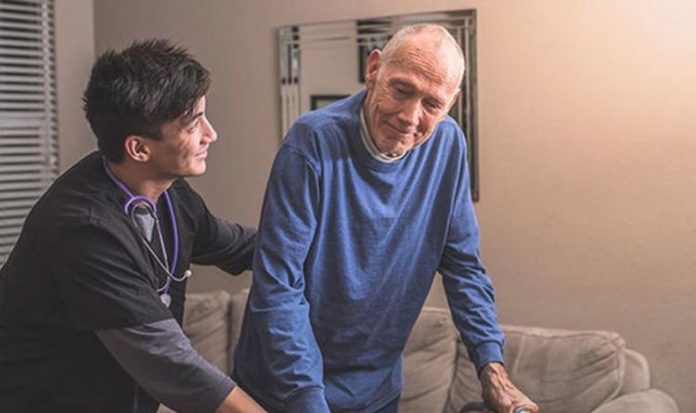
Dementia patients are drugged up (stock image) (Image: Getty)
Lib Dem health spokeswoman Munira Wilson, inset above, said: “This is an incredibly worrying time for anyone with a loved one in care with dementia. There are clearly questions to answer as to why this is happening.” Use of the drugs had reduced dramatically in the last 20 years amid concerns about their safety and limited efficacy. But the latest NHS data, published in The Lancet Neurology medical journal, shows prescription rates in England rose in March and April and remained higher than usual throughout COVID.
Experts fear the rise was driven by some dementia patients suffering worse symptoms, including psychosis, because of lockdown rules which have halted care home visits from loved ones.
It may also have become harder to manage symptoms without drugs during lockdown.
Details of the study by Professor Robert Howard, of University College London, included data up to the end of July. But figures show the trend has continued.
In September, 43,352 dementia patients – 9.81 per cent of the 441,909 on the dementia register – had a recent prescription for antipsychotic medication.
Of those given the drugs, only 7,391 had a diagnosis of psychosis.
The proportion was up from 9.40 per cent last September when 44,994 of the 478,439 dementia patients had a prescription.
Professor Howard said people with late-stage dementia and those in care facilities – most likely to be prescribed anti-psychotics – were over-represented among the additional deaths this April.
And deaths of at least 20 000 people on the dementia register should have decreased the antipsychotic prescriptions.
Fiona Carragher, of the Alzheimer’s Society, said: “Anti-psychotic drugs are an ‘archaic and dangerous’ way to treat dementia behavioural symptoms for by far the majority of people who have it.
“People with dementia have already been worst hit by coronavirus, dying in their thousands. We must prevent any further devastating knock-on effects.
“We need to know much more about where and why this rise is happening so our health and social care system can protect people with dementia and give them the quality of care they deserve.”
Ex-Tory minister Sir Mike Penning, on the Parliamentary all-party group on dementia, said: “It is very worrying if these drugs are being prescribed more during the pandemic than before.
“We have to truly understand the needs of dementia patients rather than using a chemical cosh to suppress their illness.”
Caroline Abrahams, of Age UK, said the study showed care home residents must be allowed to keep in touch with loved ones.
She said: “I feel so sorry for the families – how must it feel knowing your cherished mum or dad, partner or friend has had to be sedated because they are so unhappy and disturbed?”
Dr Rosa Sancho, of Alzheimer’s Research UK, said: “The drugs can have a powerful sedative effect and should only be used for people with dementia where there is no alternative for dealing with challenging behaviour.”
Jayne Connery, the founder of Care Campaign For The Vulnerable, said: “Many families come to us really upset that anti-psychotics are even suggested.”
Prof Howard added: “We try to avoid using these drugs because they work by sedating the patient, have side-effects and their use is associated with an increased risk of strokes and death.”
In 2009 a Government-commissioned report found antipsychotics had little or no benefit for many dementia patients and were linked to around 1,800 UK premature deaths each year.

Jayne Connery (Image: Getty)
I ‘rescued’ my mum from drugs
Jayne Connery, 53, of Gerrards Cross, Buckinghamshire, is founder and director of Care Campaign for the Vulnerable.
She said: “My own mother, Ellen, who lived with vascular dementia in a nursing home, would walk around too much and wasn’t always compliant with personal care.
“Her nurse told me anti-psychotic tablets would ‘address this’. I told them she was just bored. I was advised it was about quality of life and not quantity, as taking these tablets would have shortened her life considerably.
“I took her back to live with me. She died in November.”







